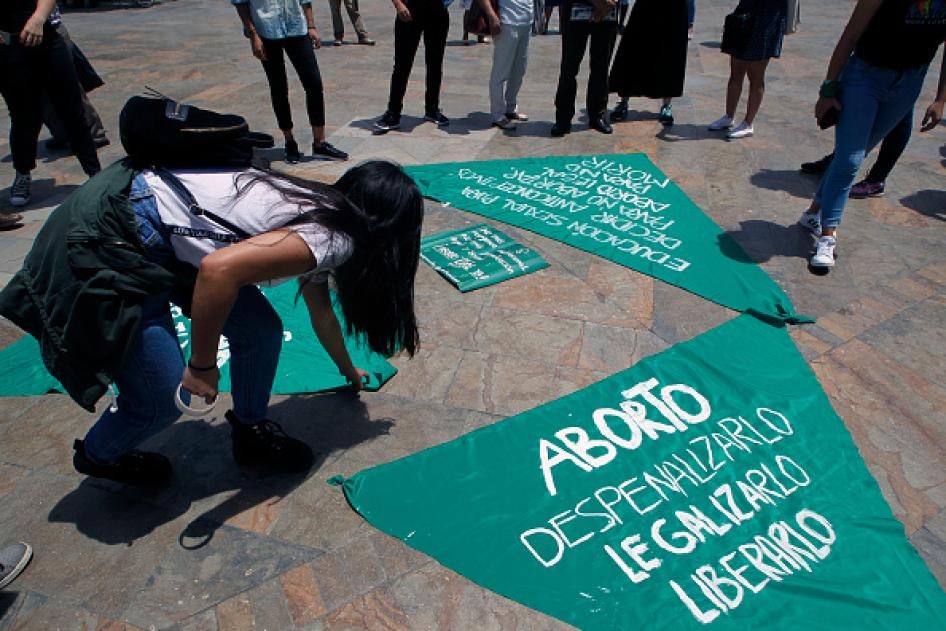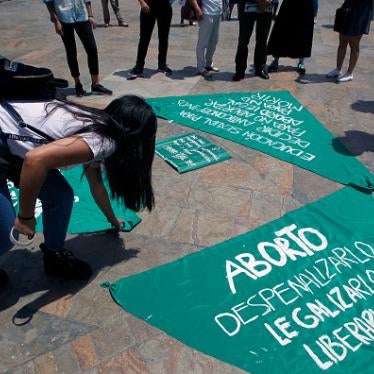A case pending before Colombia’s Constitutional Court, brought by Causa Justa, creates a landmark opportunity to end an approach to abortion that violates the rights of women and health workers by decriminalizing this critically important health care service in all cases. Human Rights Watch has made a submission to the court calling on it to do just that.
Access to abortion is legal in Colombia in cases of rape, incest, unwanted artificial insemination severe fetal abnormality and to protect the person’s life or health. But even when they have a legal right to abortion, women face problems getting one.
These barriers are largely due to the criminalization of abortion by denying safe, timely and dignified access to this essential health care. In fact, some women are criminally prosecuted even when they seek legal abortions, as documented by Women's Link Worldwide in Colombia.
Human Rights Watch has published eight reports on how criminalization of abortion in Latin America and the Caribbean violates international human rights. This research has informed three conclusions.
First, laws criminalizing abortion compel people to resort to unsafe procedures to end an unwanted pregnancy, endangering their health and lives. Relevant data collection in Colombia is poor, but according to the most recent available data from the Ministry of Health, from 2014, 70 women die and 132,000 suffer complications from unsafe abortions each year in Colombia. The Guttmacher Institute, an international organization, found in 2013 that 33 percent of women in Colombia who had clandestine abortions experienced complications requiring medical care; among rural women in poverty, the rate was up to 53 percent.
Second, criminalization mainly harms people who are poor and vulnerable. In Colombia, the Attorney General’s Office found that about 34 percent of women and girls who faced criminal investigations for abortion were domestic workers. The Guttmacher Institute reported the highest rate of complications from unsafe abortion in the impoverished Pacific region.
Third, criminalization discourages people not only from seeking an abortion but also from seeking urgently needed post-abortion care and assistance for obstetric complications. The Attorney General's Office also reported this year that 73 percent of abortion investigations from 1998 to 2019 were initiated by hospital personnel, in violation of patient confidentiality.
It also discourages health workers from providing emergency care due to the fear of prosecution or stigma for perceived complicity in abortion.
Making abortion a crime does not reduce the number of abortions. It prevents people from accessing essential health care and puts their lives and health at risk. It undermines health providers’ ability to do their jobs with integrity and without fear and compromises patient care and privacy.
Decriminalizing abortion would protect women’s health and life, and it would bring Colombia into compliance with international human rights law.









